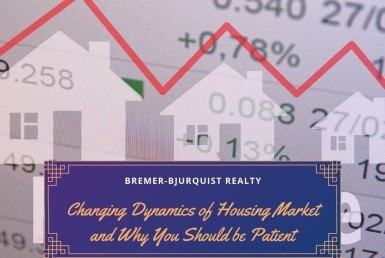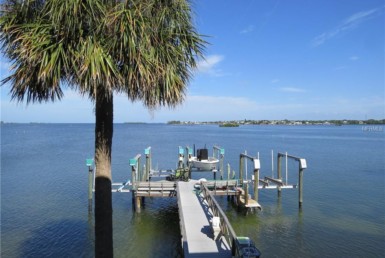The Difference Between Pre-Foreclosure and Foreclosure Homes

If you’ve been searching for a house for sale in Dunedin or the surrounding areas, you may notice some listings are classified as a “foreclosure home” or “pre-foreclosure home.”
Here’s what those terms mean for the property they are tagged on and what they can potentially mean for you as a buyer:
Pre-foreclosure Homes
A Pre-foreclosure home is the real estate version of house purgatory: a limbo state where the owner still technically owns the house, but is on a slippery slope towards losing their home to foreclosure.
In pre-foreclosure, the property owner has been delinquent on their mortgage payments for at least 3 months. This prompts their lender to issue a notice of default applying to the property and the owner. The homeowner is then given a timeframe of several months in which to recover their good standing with the lender.
The owner can either muster their finances and pay the mortgage payments which would pull the property out of pre-foreclosure, or the owner can opt to sell the house, sometimes for a lower price than the balance left on the mortgage. This is called a short sale. Not all short sales are pre-foreclosures, but some homes slated for foreclosure may fall into this category when they enter this distressed financial state.
Short sales can carry a lot of uncertainties with them and can result in a much lengthier house buying process, which means they may not be for everyone.
Since this default notice becomes public record once it is issued, websites like Zillow will list some properties as pre-foreclosure. Just because they are listed this way does not mean they are actually for sale. Yes, the house is publicly listed as being in a distressed financial situation, but it doesn’t mean the owner or lender has agreed to put the house on the market.
The reason why Zillow would alert the general public to a property in pre-foreclosure is to offer those interested the opportunity of negotiating with a homeowner. This homeowner is most likely, desperately trying to figure out what to do with an ailing mortgage.
Property owners that know they won’t be able to pay their mortgage debt can choose to sell their house during this pre-foreclosure time to avoid marring their credit. A house sold during pre-foreclosure may result in a loss of equity for the homeowners but will not count against their credit.
Buying a house in pre-foreclosure is usually the domain of experienced real estate investors who feel comfortable approaching the homeowner to negotiate a purchase before the house becomes listed. The investor then fixes the home up in order to then sell it for a profit at a later date. The average home buyer who is just looking for a place to live may not have the market knowledge or capital to make a pre-foreclosure work for them in their search for a house.
Many houses that lapse into pre-foreclosure will never officially be for sale because the owners eventually catch up on their mortgage payments. If you are interested in a house that has entered the pre-foreclosure process, the best thing to do is watch that house and see how its status progresses over time.
Foreclosure Homes
If a homeowner can’t or won’t pay their owed mortgage payments during the pre-foreclosure period, then the house will usually be sold to the highest bidder at a foreclosure home auction.
Houses sold at auction are sold as-is and are not open for buyers to tour. The house may need extensive repairs or it may not. That’s the risk of buying an auction house. Once again, people who are practiced at such purchases assess that risk for themselves and are usually the ones bidding on those houses.
Foreclosure is bad for the homeowners credit (it will stay on your credit report for 7 years!) and is usually an expensive process for the banks that are managing the property. Because of this, banks and lenders will usually work with the homeowner as much as they can to keep things from getting to this point.
If the house does not sell at auction, it will be placed on the market with the label “bank owned.” When this happens, it can be bought using normal financing processes. The buyer will be making an offer to an institution (a bank) for the house and not to another homeowner as in a normal real estate transaction.
Bank owned houses typically take a little longer to process. As long as the buyer is aware of this, these houses have the potential of being fairly priced because the bank is motivated to get rid of the house and finally recover some of their costs for its foreclosure process.
Next steps
If the thought of buying a pre-foreclosed or foreclosed home is still something you are interested in, Bremer-Bjurquist Realtors in Dunedin, Florida are available to you with any questions you may have. Having a real estate professional at your side as you navigate a tricky process like buying a foreclosed house can help avoid potentially negative aspects of a complex purchasing situation.
Being located in Dunedin makes it our specialty and we would love to show you some of the beautiful gulf coast houses for sale in our inventory.







